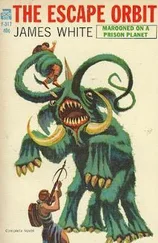James White - The Eighteen Christian Centuries
Здесь есть возможность читать онлайн «James White - The Eighteen Christian Centuries» — ознакомительный отрывок электронной книги совершенно бесплатно, а после прочтения отрывка купить полную версию. В некоторых случаях можно слушать аудио, скачать через торрент в формате fb2 и присутствует краткое содержание. Жанр: foreign_prose, История, foreign_edu, foreign_antique, на английском языке. Описание произведения, (предисловие) а так же отзывы посетителей доступны на портале библиотеки ЛибКат.
- Название:The Eighteen Christian Centuries
- Автор:
- Жанр:
- Год:неизвестен
- ISBN:нет данных
- Рейтинг книги:4 / 5. Голосов: 1
-
Избранное:Добавить в избранное
- Отзывы:
-
Ваша оценка:
- 80
- 1
- 2
- 3
- 4
- 5
The Eighteen Christian Centuries: краткое содержание, описание и аннотация
Предлагаем к чтению аннотацию, описание, краткое содержание или предисловие (зависит от того, что написал сам автор книги «The Eighteen Christian Centuries»). Если вы не нашли необходимую информацию о книге — напишите в комментариях, мы постараемся отыскать её.
The Eighteen Christian Centuries — читать онлайн ознакомительный отрывок
Ниже представлен текст книги, разбитый по страницам. Система сохранения места последней прочитанной страницы, позволяет с удобством читать онлайн бесплатно книгу «The Eighteen Christian Centuries», без необходимости каждый раз заново искать на чём Вы остановились. Поставьте закладку, и сможете в любой момент перейти на страницу, на которой закончили чтение.
Интервал:
Закладка:
|A.D. 68.|
Galba was elected to fill his place, and was murdered in a few months.
The degraded prætorians then elevated one of the companions of Nero’s guilty excesses to the throne in the person of Otho, but resistance was made to their selection.
|A.D. 69.|
The forces in Germany nominated Vitellius to the supreme authority; and Otho, either a voluptuary tired of life, or a craven incapable of exertion, committed suicide to save the miseries of civil war. But this calamity was averted by a nobler hand. Vitellius had only time to show that, in addition to the usual vices of the throne, he was addicted to the animal enjoyments of eating and drinking to an almost incredible degree, when he heard a voice from the walls of Jerusalem which hurled him from the seat he had so lately taken; for the legions engaged in that most memorable of sieges had decided on giving the empire of the world to the man who deserved it best, and had proclaimed their general, Flavius Vespasian, Imperator and Master of Rome.
|A.D. 70.|
Now we will pause, for we have come to the year seventy of this century, and a fit breathing-time to look round us and see what condition mankind has fallen into within a hundred years of the end of the Republic. We leave out of view the great empires of the farther East, where battles were won, and dynasties established on the plains of Hindostan, and within the Chinese Wall. The extent of our knowledge of Oriental affairs is limited to the circumference of the Roman power. Following that vast circle, we see it on all sides surrounded by tribes and nations who derive their sole illumination from its light, for unless the Roman conquests had extended to the confines of those barbaric states, we should have known nothing of their existence. Beyond that ring of fire it is almost matter of conjecture what must have been going on. Yet we learn from the traditions of many peoples, and can guess with some accuracy from the occurrences of a later period, what was the condition of those “outsiders,” and what were their feelings and intentions with regard to the civilized portions of the world. Bend your eyes in any direction you please, and what names, what thoughts, suggest themselves to our minds! We see swarms of wild adventurers with wives and cattle traversing with no definite object the uncultivated districts beyond the Danube; occasionally pitching their tents, or even forming more permanent establishments, around the roots of Caucasus and north of the Caspian Sea, where grass was more plentiful, and hills or marshes formed an easily defended barrier against enemies as uncivilized as themselves. Coming from no certain region—that is, forgetting in a few years of wandering the precise point from which they set out, pushed forward by the advancing waves of great national migrations in their rear—moving onward across the upper fields of Europe, but keeping themselves still cautiously from actual contact with the Roman limits, from those hordes of homeless, lawless savages are derived the most polished and greatest nations of the present day. Forming into newer combinations, and taking different names, their identity is scarcely to be recognised when, three or four centuries after this, they come into the daylight of history; but nobody can doubt that, during these preliminary ages, they were gathering their power together, hereafter, under the impulse of fresh additions, to be hurled like a dammed-up river upon the prostrate realm, carrying ruin and destruction in their course, but no less certainly than the overflowing Nile leaving the germs of future fertility, and enriching with newer vegetation the fields they had so ruthlessly submerged. And year by year the mighty mass goes on accumulating. The northern plains become peopled no one knows how. The vast forests eastward of the Rhine receive new accessions of warriors, who rapidly assimilate with the old. United in one common object of retaining the wild freedom of their tribe, and the possession of the lands they have seized, they have opposed the advance of the Roman legions into the uncultivated districts they call their own; they have even succeeded in destroying the military forces which guarded the Rhine, and have with difficulty been restrained from crossing the great river by a strong line of forts and castles, of which the remains astonish the traveller of the present day, as, with Murray’s Guide-Book in his hand, he gazes upon their ruins between Bingen and Aix-la-Chapelle.
Repelled by these barriers, they cluster thicker than ever in the woods and valleys, to which the Romans have no means of penetrating. Southern Gaul submits, and becomes a civilized outpost of the central power; but far up in the wild regions of the north, and even to the eastward of the Gulfs of Bothnia and Finland, the assemblage goes on. Scandinavia itself becomes over-crowded by the perpetual arrival of thousands of these armed and expatriated families, and sends her teeming populations to the east and south. But all these incidents, I must remind you, are occurring in darkness. We only know that the desert is becoming peopled with crowded millions, and that among them all there floats a confused notion of the greatness of the Roman power, the wealth of the cities and plains of Italy; and that, clustering in thicker swarms on the confines of civil government, the watchful eyes of unnumbered savage warriors are fixed on the territories lying rich and beautiful within the protection of the Roman name. So the whole Roman boundary gets gradually surrounded by barbaric hosts. Their trampings may be heard as they marshal their myriads and skirt the upper boundaries of Thrace; but as yet no actual conflict has occurred. A commotion may become observable among some of the farthest distant of the half intimidated of the German tribes; or an enterprising Roman settler beyond the frontier, or travelling merchant, who has penetrated to the neighbourhood of the Baltic, may bring back amazing reports of the fresh accumulations of unknown hordes of strange and threatening aspect; but the luxurious public in Rome receive them merely as interesting anecdotes to amuse their leisure or gratify their curiosity: they have no apprehension of what may be the result of those multitudinous arrivals. They do not foresee the gradual drawing closer to their outward defences—the struggle to get within their guarded lines—the fight that is surely coming between a sated, dull, degraded civilization on the one side, and a hungry, bold, ambitious savagery on the other. They trust every thing to the dignity of the Eternal City, and the watchfulness of the Emperor: for to this, his one idea of irresistible power equally for good or evil, the heart of the Roman was sure to turn. And for the eleven years of the reigns of Vespasian and Titus, the Roman did not appeal for protection against a foreign enemy in vain. Rome itself was compensated by shows and buildings—with a triumph and an arch—for the degradation in which it was held. But prætor and proconsul still pursued their course of oppressing the lands committed to their defence; and the subject, stripped of his goods, and hopeless of getting his wrongs redressed, had only the satisfaction of feeling that the sword he trembled at was in the hand of a man and not of an incarnate demon. A poor consolation this when the blow was equally fatal. Vespasian, in fact, was fonder of money than of blood, and the empire rejoiced in having exchanged the agony of being murdered for the luxury of being fleeced.
|A.D. 79.|
With Titus, whom the fond gratitude of his subjects named the Delight of the human race, a new age of happiness was about to open on the world; but all the old horrors of the Cæsars were revived and magnified when he was succeeded, after a reign of two years, by his brother, the savage and cowardly Domitian.
Читать дальшеИнтервал:
Закладка:
Похожие книги на «The Eighteen Christian Centuries»
Представляем Вашему вниманию похожие книги на «The Eighteen Christian Centuries» списком для выбора. Мы отобрали схожую по названию и смыслу литературу в надежде предоставить читателям больше вариантов отыскать новые, интересные, ещё непрочитанные произведения.
Обсуждение, отзывы о книге «The Eighteen Christian Centuries» и просто собственные мнения читателей. Оставьте ваши комментарии, напишите, что Вы думаете о произведении, его смысле или главных героях. Укажите что конкретно понравилось, а что нет, и почему Вы так считаете.












